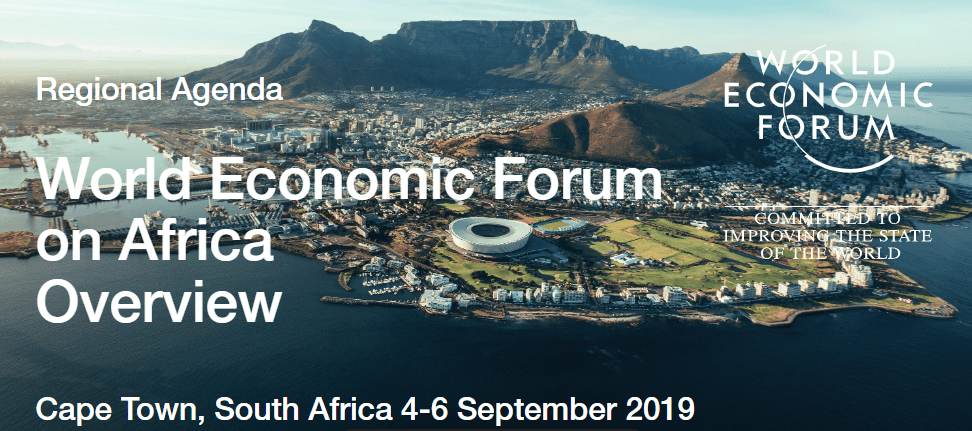
New laws are being implemented in jurisdictions
across Africa to facilitate the
sourcing of alternative infrastructure funding,
which is needed to kickstart sorely needed infrastructure projects.
Infrastructure development
is key to the growth of African economies that want to make the most of their
opportunities and streamline cross-border trade, delegates at the World
Economic Forum (WEF) for Africa conference have heard.
Currently taking place in Cape Town, the
conference’s theme focuses on shaping inclusive growth and shared futures in
the Fourth Industrial Revolution
(4IR).
According to a statement issued by law firm Baker
McKenzie on Wednesday, China has played a key role in providing alternative
sources of financing to African countries that have not been able to access
funding in more traditional ways.
While the benefits are said to be numerous, the law
firm pointed out that African countries were also concerned about their growing
dependence on China.
To put it into perspective, the statement refers to
research published by Baker McKenzie and IJGlobal in 2018, that showed that the
value of loans from Chinese financing of enegy and infrastructure projects in Africa had
almost trebled between 2016 and 2017, from $3-billion to $8.8-billion.
“As China’s Belt and Road Initiative (BRI), a
multibillion-dollar plan to link Asia, Europe and Africa, is actively being
implemented, we expect this amount will increase even further,” Baker McKenzie
banking and finance head Wildu du
Plessis said.
As one of South Africa’s largest trading partners,
China plays an important role in infrastructure investment
in this country too. At the Brazil, Russia, India, China and South Africa (Brics) Energy Summit in
2018, China pledged to invest $14.7-billion in South Africa and to grant
loans to State-owned enterprises Eskom and Transnet.
However, Du Plessis noted that even though the South African infrastructure funding
gap was not as large as that of other countries in Africa, there was
still difficulty in mobilising funds for infrastructure development
and related projects owing to
traditional funders taking their time to decide on whether to get involved.
Adding to this, Baker McKenzie Beijing office partner Shirley Wang noted that, as part
of the mobilisation of different sources of funding to fill the infrastructure gap,
there was “a big bucket of Chinese funding that could be used for infrastructure projects in Africa“.
The increasing appetite from China to
fund infrastructure projects as part
of its BRI means that country is keen to partner with local development finance
institutions and other international funders. Wang added that China’s
investment in BRI countries and regions would continue in the future.
However, Du Plessis said there was also a rising concern among African
sovereigns who were worried about the long-term effects of their dependence on
China, even though China has reiterated that it wants to be considered a
responsible investor in Africa.
While it remains to be seen whether this concern
has an impact on Chinese involvement in the funding of infrastructure projects in future
years, Du Plessis explained that African countries had also begun building capacity
to correct the imbalance between borrowers and lenders in the negotiation phase
so that more balanced agreements could be reached.
When it comes to assessing the BRI’s impact on
North African countries, Baker McKenzie Casablanca head and partner Kamal Nasrollah said that,
traditionally, the North African markets had been closely correlated with the
European and US markets, as well as some Asian markets.
The BRI has meant recipient countries no longer
need to depend on traditional investors and benefit from China’s growth.
While all North African nations are part of the
BRI project, the benefits
received from this initiative vary, he added, noting that, in some countries,
such as Tunisia, the BRI is still in study phase, while in others, primarily
Algeria and Morocco, some infrastructure projects have
already been implemented.
According to Nasrollah, Algeria has perhaps the
closest ties to China in the region.
One of the key infrastructure projects to be
signed in Algeria recently was the $6-billion project for the
exploitation of phosphate in the eastern region of Algeria.
In Morocco, Chinese companies financed and have
been building the
multibillion-dollar Noor 2 and Noor 3 solar parks near Ouarzazate,
which is 100 km south-east of Marrakesh.
Other initiatives include a $10-billion Chinese-funded industrial city in Tangier, which is intended to give Beijing access to a tech hub next to one of Africa’s most dynamic ports. ttps://www.engineeringnews.co.za/article/alternative-infrastructure-funding-methods-discussed-at-wef-conference-2019-09-04

